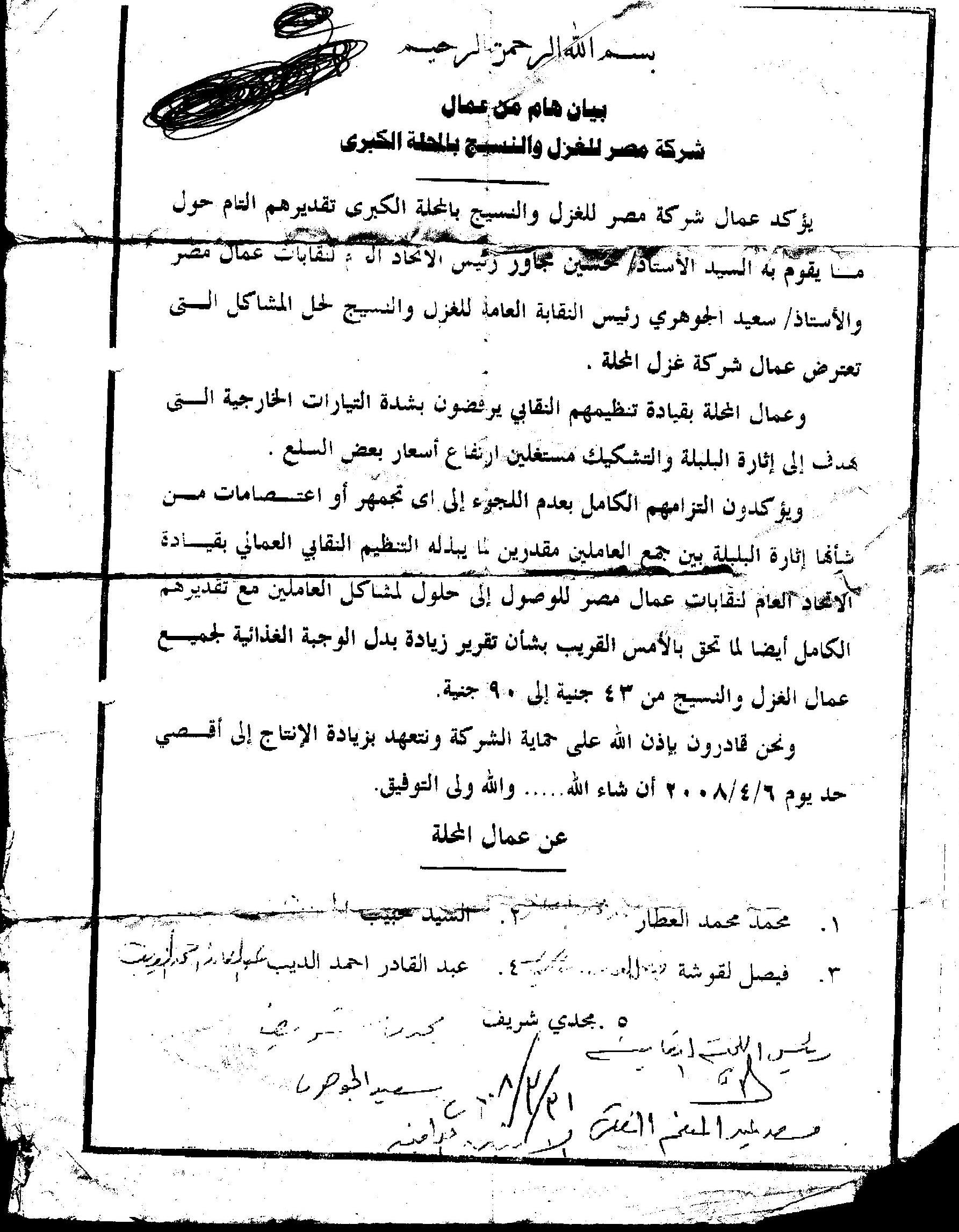Socialist lawyer Haitham Mohamadein reviewing the history of the fight for labor unions in Egypt.
Socialist lawyer Ahmad Taha stressing the fight must not only be limited to the court houses, but more importantly the streets.
Hossam el-Hamalawy
Resources on the Revolutionary Socialists
Testimony from a Mahalla labor organizer involved in the 6 April uprising:
The Textile Workers’ League activists were not invited to the meeting with Hussein Megawer (the head of the state-backed General Federation of Trade Unions and the leader of the ruling NDP parliamentary bloc). He knew they’d eat him alive if he asked them to do something like what he was going to ask from Muhammad el-Attar and his friends. Still, (Textile Workers’ League leaders) Kamal el-Fayoumi and Wael Habib rushed to Cairo as soon as they knew about the meeting, and waited for Attar and his men to show up in front of the HQ of the Federation. Attar, Habib and others were shocked and embarrassed to see them there…
As soon as everyone entered Megawer’s office, Attar tried to put on some show, only to be silenced by Megawer in a humiliating way..
“Shut up!” cried Megawer in the face Attar. “Not a single word! I want to hear only three things: We are sorry; There will not be a strike on 6 April; and production will increase on that day.” Then he handed over the delegation a ready made statement to sign, with their five names printed. The five signed, but Wael and Kamal refused. “If the workers are planning to strike on 6 April, then I’ll strike with them,” Wael said, while Kamal looked into Megawer’s eyes in challenge and said: “We are here to discuss the minimum wage. You didn’t say anything about that. We are not signing.”
Megawer lost it and started issuing threats to the Textile Workers’ League activists: “You will go behind the sun. Take my word for it.”
Below is a scanned copy of the pledge signed by Attar and his four comrades, praising the state-backed federation and general union, pledging not to strike on 6 April but to increase production, and accusing “political groups outside the factory” of trying to “stir troubles”. The statement was leaked out of Megawer’s office, and copies were distributed by the Textile Workers’ League activists in the factory in the days preceding the uprising to expose the betrayal.
